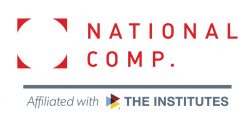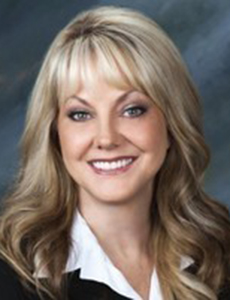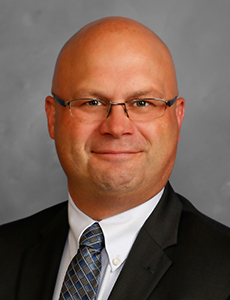Concerned Communicable Diseases Will Rock Workers’ Comp Claims? Some Tools and Best Practices to Help You Worry Less

Even though the pandemic is far from over, risk managers and insurance professionals have already started accumulating best practices for handling large numbers of communicable disease workers’ compensation claims.
New procedures in areas such as contact tracing have been refined, as have legal and policy language concerning compensation. At the same time practices and procedures are being fine tuned, underwriters and insureds are implementing lessons learned on how to make their organizations more flexible and responsive to future pandemics.
Risk & Insurance® recently spoke with a few industry experts about these critical issues.
R&I: What are the key shifts in how compensability is determined for workplace exposures, and do you think these changes are likely to remain post-pandemic?
Donna Stewart, corporate workers’ compensation claims supervisor, Caesars Entertainment: With respect to COVID 19, a major shift in compensability has been the incorporation of contact tracing into risk management and human resources.
That has been especially important for large essential businesses because that is where the greatest exposure existed at the onset of the pandemic — grocery stores, doctors’ offices, hotels, etc. The unknown variables regarding the seriousness of the exposure made it difficult for anyone who contracted the virus to know exactly how or when.
To determine whether an employee reporting symptoms might have been exposed at work, it became necessary to understand the life cycle of the virus and to trace the exposures. This is not a perfect science, based on employees’ recollections, the process [means] the compensability of a claim is more based on probability rather than possibility. [As a result] employers are not as likely to have a high volume of claims.
Caryn Siebert, vice president and director of carrier engagement, Gallagher Bassett Services: As employees slowly return to work, either full- or part-time, employers have a unique opportunity to build on strengths and correct weaknesses, adjust work arrangements, and address compensation and management techniques in ways that could significantly increase employee commitment and satisfaction.
Thoughtful changes that minimize risk and maximize performance will give flexible employers a powerful competitive advantage during this recovery.
R&I: Some public-health officials have cautioned that epidemics, even pandemics, may become more frequent. How can underwriters and claims managers build a flexible organization that is efficient in non-outbreak times, and yet can expand to handle sudden influxes of communicable disease cases?
Stewart: There is no way to predict a pandemic, or even an epidemic as we have experienced. Historically, the best practices for underwriters and claims managers are to know and understand the value of their policies, the importance of educating their clients, and putting practices in place for preparedness when something catastrophic occurs.
An underwriter should be well versed in the insurance markets, both admitted and surplus-lines, that offer coverage for pandemic outbreaks. The underwriter should be transparent in discussing the markets and coverage with insurance agents and brokers so that appropriate coverage can be offered to an employer that could be impacted by business interruption, loss of income, and other damages related to unforeseen business closure caused by a pandemic.
The claims managers, whether internal to the business or working for the insurer, or both, must know what the policy endorsements and exclusions state, and what is covered under the policy if a pandemic occurs. Likewise, a claims manager needs to be educated in the life cycle of the virus and have a solid understanding of contact tracing in order to timely handle a sudden influx of illness claims if they should arise.
Siebert: Though we tend to think of innovation as technology-related, the pandemic also drove rapid process innovation in response to a rapidly changing regulatory environment. For example, presumption laws and increases in business interruption claims have pushed claim providers to be more nimble in defining, staffing and making new processes operational on a frequent basis to respond to the needs of clients and claimants.
With underlying changes to the medical and court systems, the introduction of COVID-related claims and rapid changes in client exposures, the claim industry needed to more effectively anticipate fluctuations in claim volumes and opportunities/obstacles for closure.
R&I: Prior to the pandemic, do you think communicable disease was an issue that got much attention outside of the health care sector?
Justin T. Nestor, Partner, Kopka Pinkus Dolin: Prior to the pandemic, I don’t think many in our industry appreciated that communicable diseases were a significant risk in the workers’ compensation context, especially in those states where their case law specifically addressed such claims.
As we try to emerge, I think we are seeking how best to address and mitigate such claims, as well as preventive measures for any future claims. [And we still don’t know] when will the COVID-19 pandemic will end, or what will be the next communicable disease.
R&I: On the legal front, is it too soon to be able to draw conclusions from the current pandemic about changes in employers’ liability for workplace exposures and duty of care?
Nestor: I think it is somewhat premature to see what the full effects will be, more so given that each state has a different framework for how workers’ compensation claims and benefits are administered. Some states created presumptions for COVID-19 compensability where others treated them how any other claim would be handled. Aside from liability for workers’ compensation benefits, I think there will continue to be related legal issues surrounding returning to work and vaccine mandates, among other issues.
Siebert: We aren’t “administering claims,” we are restoring lives, protecting brands and resolving disputes on behalf of our clients. Having this as part of our DNA informs everything we do — from who we hire, to how we train, to the investments we make in technology and innovation. Accordingly, we view technology and innovation as ways to enhance the claim experience and personal touch, not to disintermediate it.
If we remove an administrative task from a claim professional, that’s more time for them to speak with an injured worker. If an injured worker can check on the status of their indemnity payment through a mobile app, that’s more time for our claims professional to engage with the employer about the worker’s return to work. If we can provide analytic tools to help clients identify opportunities in their portfolio, we have more time for robust claim strategy discussions that benefit claimants and the client’s total cost of risk.
Stewart, Siebert and Nestor will be joined by Dena Abdallah, vice president, managing consultant with Marsh for a timely session titled Reframe Your Approach to Communicable Disease Claims, Pandemic and Beyond, at the 2021 National Comp event at Mandalay Bay in Las Vegas, Oct. 20-22, 2021.
The hour-long session will be presented Thursday, Oct. 21 at 10:45 am. It will be an interactive panel discussion addressing COVID-19 and other communicable-disease claims and their effects on employers and workers’ compensation insurance. &
 National Comp — the National Workers’ Compensation and Disability Conference — is back! We’re planning an in-person show for October, 20-22, 2021 and we’re excited to see everyone while still adhering to all safety protocols set forth by local and national health authorities at the time of the event. Register today!
National Comp — the National Workers’ Compensation and Disability Conference — is back! We’re planning an in-person show for October, 20-22, 2021 and we’re excited to see everyone while still adhering to all safety protocols set forth by local and national health authorities at the time of the event. Register today!
This year, we’ll feature seven tracks — from core content on medical and pharmaceutical management, claims and return-to-work, plus new and expanded avenues to explore like risk finance and injury prevention. All of our educational sessions are chosen for their ability to deliver sound takeaways and ideas that attendees can use right now.
In the meantime, National Comp will continue bringing you free virtual, educational content through our digital sessions series and our CompTalks program. Register today to make sure you don’t miss a digital session and check out our on-demand CompTalks library. Missed a session? Watch it here on-demand.













